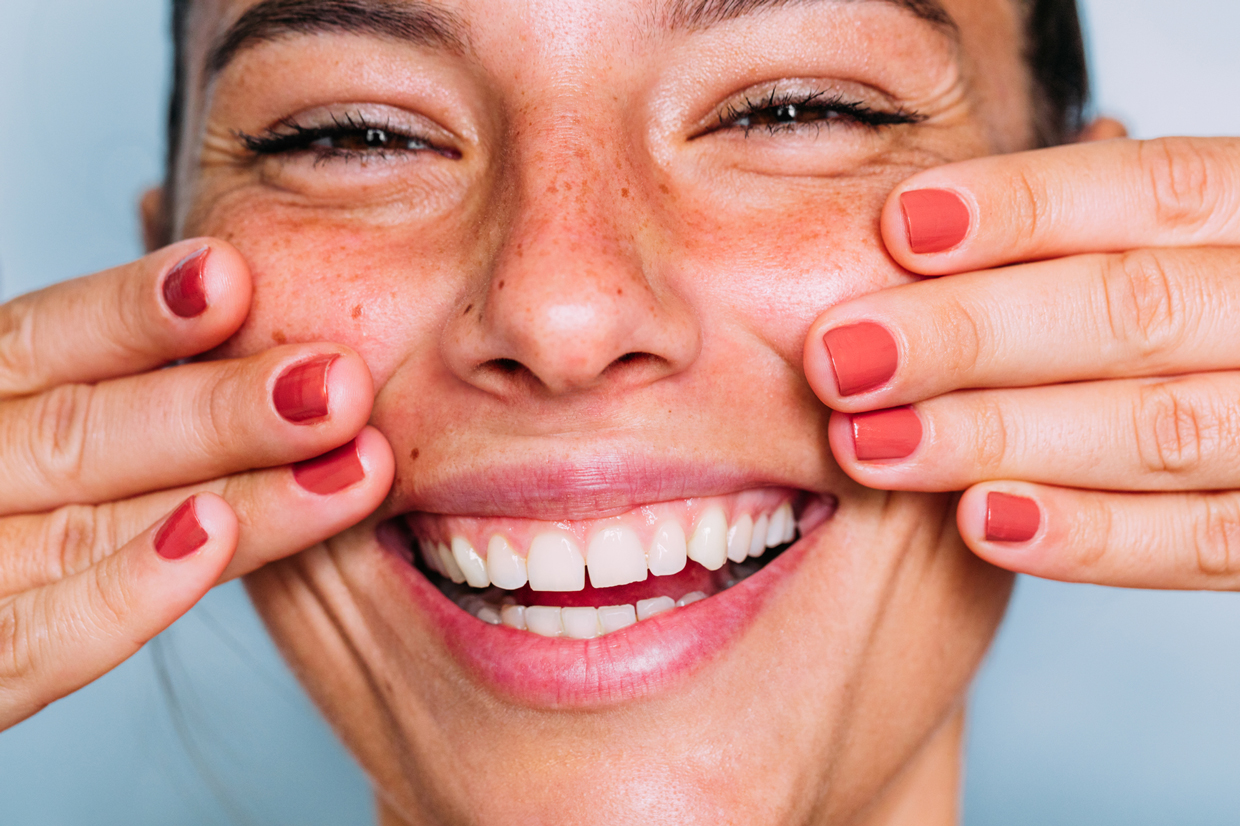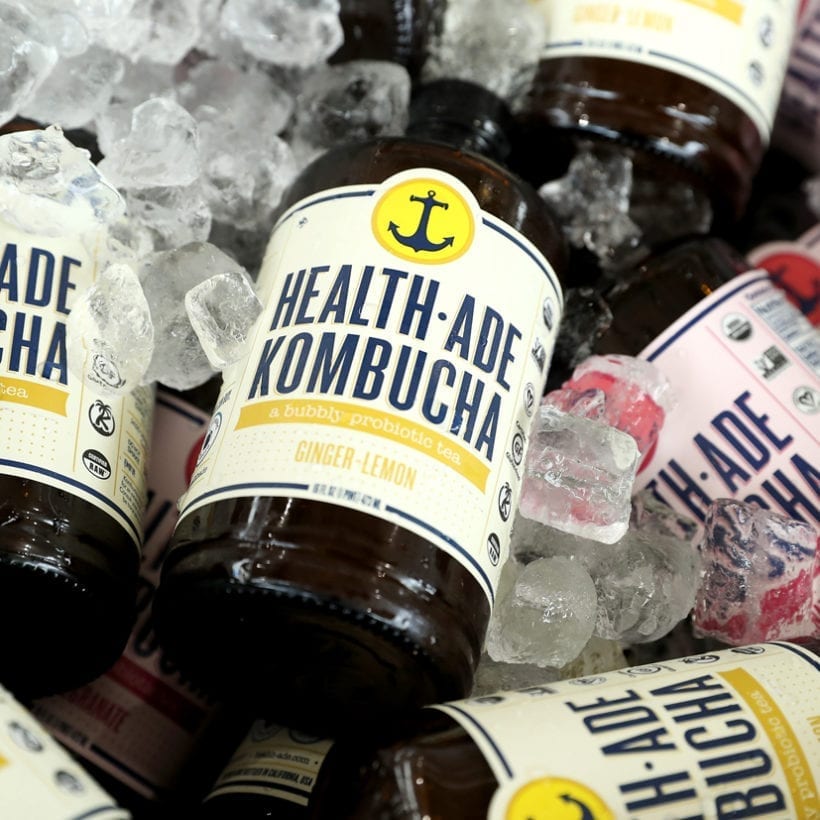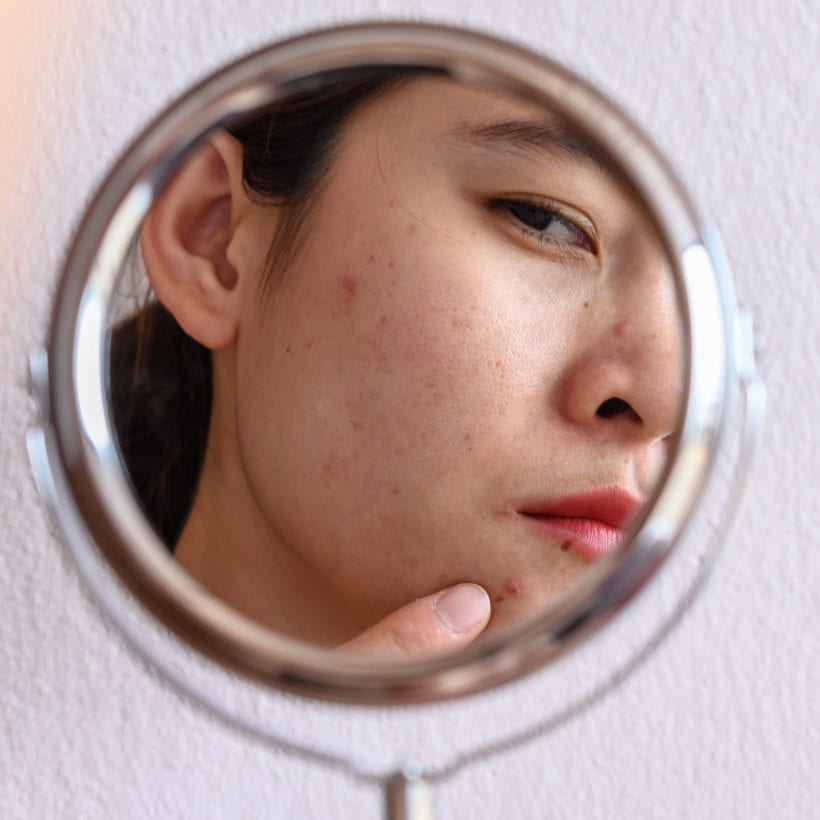They say an apple a day can keep the dentist away… and research is now saying that good oral hygiene is linked to clearer skin. One study revealed that one patient’s presence of dental infections provoked a follicular inflammatory response resulting in acne that was previously untreatable until the abscessed tooth was removed. This is because acne vulgaris (common acne) triggers the immune system to produce antibodies to fight Propionibacterium acnes (the same bacteria found in blemishes). P. acnes also happens to be found in the mouth and throat. “When your body is constantly fighting these bacteria, your immune system is taxed,” says Dr. Chris Strandburg, DDS.
A good indicator that your acne is a result of poor oral hygiene? Take a look at where the acne is appearing on your face. Touching your teeth or mouth and then making contact with your face commonly lead to pimples around the mouth, chin, and lower cheeks — but that’s not the only way acne can spread if you have poor oral hygiene. Conditions like cavities, gum disease, and gingivitis also give bacteria easy access to your skin by spreading from your bloodstream. This means acne isn’t just privy to appearing around your mouth but can appear elsewhere on your face and body even with a solid skincare routine in place.
If your dermatologist suspects that your acne might be due to poor oral hygiene, check with your dentist to discuss the right ways to take care of your teeth and gums. In addition to keeping up with your skincare regimen, here’s where to start to prevent acne through oral hygiene:
- Floss and brush your teeth twice a day: “I recommend a device like the Waterpik Sonic-Fusion, which not only cleanse the flat surfaces of teeth thoroughly, but the water jet in the brush head cleans deeply between teeth and below the gumline, removes hard-to-reach bacteria, and relieves your immune system of additional stress that could lead to systemic issues such as skin diseases,” says Strandburg.
If you use a regular toothbrush, make sure to focus on the areas where your teeth meet your gums, as well as your tongue where bacteria can build up. “Creating a consistent brushing and flossing routine to remove this bacteria lifts the burden off of your immune system, giving your body the chance to send resources elsewhere,” he says. - Follow up teeth brushing with mouthwash: Give oral health extra insurance with a mouthwash that contains antiseptics like alcohol or menthol that get those tricky crevices of your mouth and kill bacteria.
- Wash your face after your oral hygiene routine: Washing your face after brushing your teeth can help remove any acne-causing bacteria that may have gotten on your mouth or chin.
- Limit sweets and sugary drinks: These can leave a residue on your teeth that can lead to tooth decay, making your body more susceptible to infection and bacteria entering your bloodstream.
- Don’t skip your dentist visits: It can be tempting to push off doctor appointments, especially during pandemic times. But proper oral health consists of visiting the dentist at least every six months for deep cleaning and making sure things are looking normal.
We only recommend products we have independently researched, tested, and loved. If you purchase a product found through our links, Sunday Edit may earn an affiliate commission.







